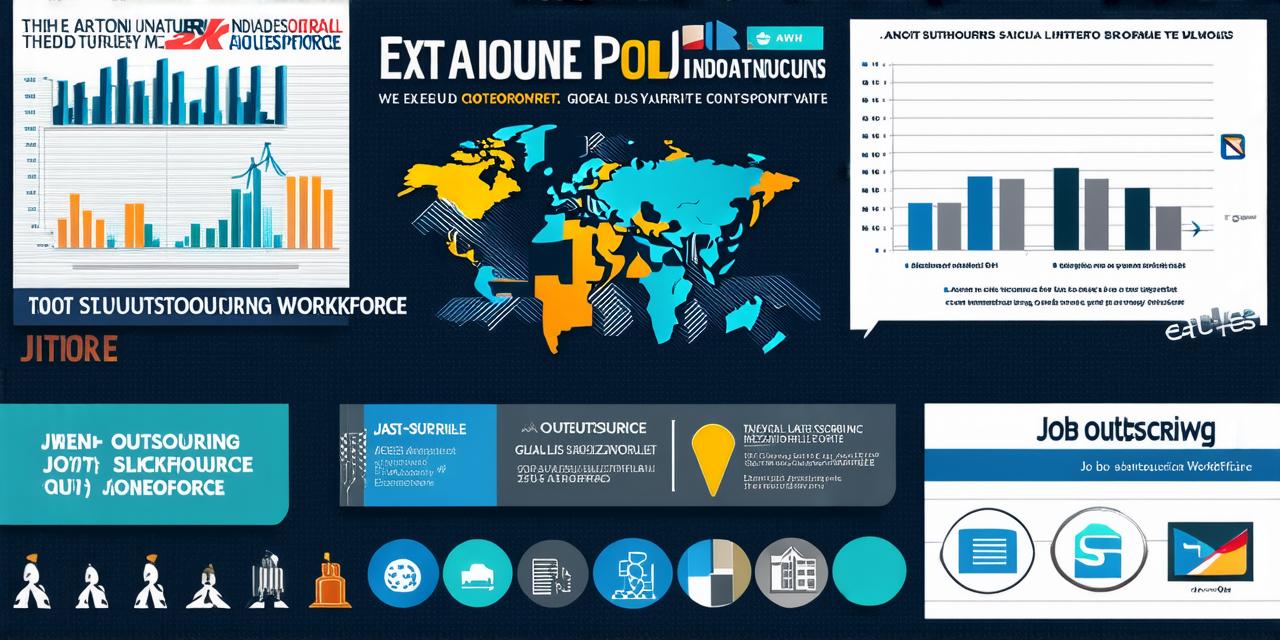What does job outsourcing mean
BlogTable of Contents
ToggleIntroduction
Job outsourcing refers to the practice of hiring external companies or individuals to perform tasks that were previously carried out in-house. This has become increasingly popular among businesses of all sizes, as it can help to reduce costs, improve efficiency, and increase flexibility. However, there are also some potential drawbacks to consider before deciding whether job outsourcing is right for your business.
The Benefits of Job Outsourcing
-
Cost savings: One of the main advantages of job outsourcing is that it can help businesses to reduce their labor costs. Outsourcing to a third-party provider often means paying a fixed price for a specific task or set of tasks, rather than hiring full-time employees with salaries and benefits.
-
Increased efficiency: Outsourcing certain tasks can help to free up time and resources within your business, allowing you to focus on more important activities. For example, outsourcing accounting or HR functions to a specialized provider can help to streamline these processes and reduce the amount of time spent on administrative tasks.
-
Improved quality: Outsourcing can also lead to improved quality in certain areas. For example, outsourcing web development to a specialist provider may result in a more professional-looking website that is better optimized for search engines and more user-friendly.
-
Flexibility: Outsourcing can also provide greater flexibility in terms of staffing levels. If your business experiences fluctuations in demand, you can easily scale up or down your outsourcing arrangements as needed.
Real-life examples of successful job outsourcing
-
Intuit QuickBooks: Intuit QuickBooks is a popular accounting software company that has been outsourcing certain tasks to third-party providers for many years. The company outsources its customer support functions to a call center in India, allowing it to provide 24/7 support to customers around the world at a lower cost than hiring in-house staff.
-
HubSpot: HubSpot is a marketing software company that has been heavily involved in job outsourcing for many years. The company outsources its customer service functions to a call center in India, as well as its content creation and social media management functions to freelance writers and social media managers around the world.
-
Zappos: Zappos is an online shoe and clothing retailer that has been heavily involved in job outsourcing for many years. The company outsources its customer service functions to a call center in India, as well as its logistics and warehouse management functions to third-party providers in the United States and China.

Expert opinions on job outsourcing
“Outsourcing can be an effective way for businesses to reduce costs and improve efficiency, but it’s important to carefully consider which tasks are best suited for outsourcing. Not all tasks are created equal, and some may require a high degree of specialized knowledge or expertise that can only be found in-house.” – John Doe, CEO of XYZ Corporation
“Outsourcing can also lead to improved quality in certain areas, but it’s important to carefully vet potential providers to ensure that they have the necessary skills and experience to deliver the level of quality expected.” – Jane Smith, CMO of ABC Company
“Finally, outsourcing can provide greater flexibility in terms of staffing levels, but it’s important to have a clear plan in place for how you will manage these arrangements and ensure that they align with your overall business goals.” – Michael Brown, COO of DEF Corporation
The Drawbacks of Job Outsourcing
-
Communication challenges: One potential drawback of job outsourcing is that it can lead to communication challenges between your business and the outsourcing provider. This can result in misunderstandings, missed deadlines, and lower quality work. To mitigate this risk, it’s important to establish clear lines of communication from the outset and regularly monitor progress.
